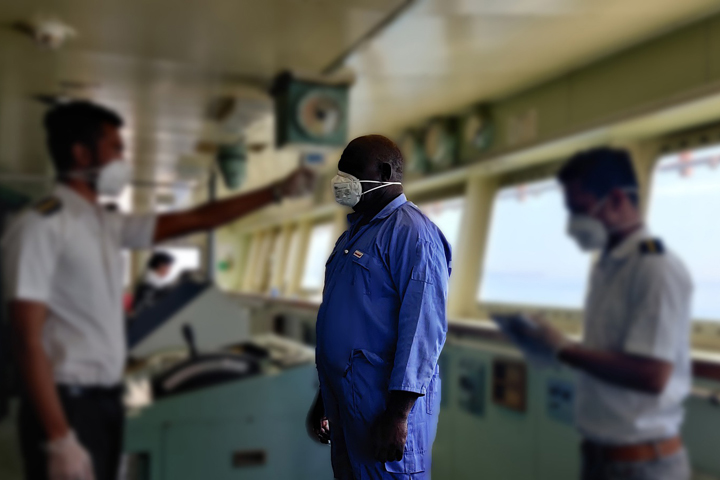UN organizations warn that seafarers have become collateral victims of the COVID-19 crisis and their inability to move to and from ships needs attention, to keep maritime transport operational and to prevent disruption of supply chains.

UN organizations warn that seafarers have become collateral victims of the COVID-19 crisis. The situation faced by seafarers’ inability to move to and from ships needs attention, to keep maritime transport operational and to prevent disruption of supply chains.
Eight UN organizations involved in trade have highlighted the critical importance of the international transport and integrated supply chains in recovering from COVID-19 and achieving the sustainable development goals.
In a joint statement, they note that maritime transport, vital to prosperity and sustainable development, carried more than 80 per cent of global trade by volume, and 60 to 70 per cent of global trade by value prior to the pandemic. But they warn that seafarers have become collateral victims of the COVID-19 crisis. The situation faced by seafarers’ inability to move to and from ships needs attention, to keep maritime transport operational and to prevent disruption of supply chains.
Hundreds of thousands of seafarers have been left stranded on, or unable to join ships, an issue recently highlighted by UN agencies and programmes involved in the maritime sector, human rights, trade, travel and transportation (See Briefing 27/2020) and by International Maritime Organization (IMO) Secretary-General Kitack Lim (See Briefing 26/2020). Governments have been urged to designate seafarers as key workers, so that they can safely leave and join ships.
The joint statement notes that early responses to restraining the spread of the COVID-19 pandemic negatively impacted all transport operations, leading initially to severe disruptions of supply chains and trade flows worldwide.
To drive socio-economic recovery and to become more resilient and sustainable, supply chains require a more effective coordination, cooperation between the transport modes, and across borders, the statement says.
The signatories support further digitalization of trade and customs procedures, using global United Nations standards, to ensure the fast and secure exchange of data and information concerning cargo and means of transport and contactless clearances. Single Windows, recommended under IMO’s Facilitation Convention, enable electronic communication with all relevant agencies.
The Joint Statement encourages all governments to take a risk-based approach to restoring air, inland and maritime connectivity with minimal restrictions, while preventing the spread of COVID-19, protecting the health and safety of drivers, crew and border agency personnel, and strengthening public confidence in trade and transport.
The signatories call upon Governments to review international and regional trade agreements, as deemed necessary, and ensure they contain provisions to facilitate trade and transport in times of crisis and pandemics.
The signatories also call upon member States to take appropriate action in facilitating and dematerializing trade and transport value chains and reiterate support to Member States to ensure a sustainable socio-economic recovery from the COVID-19 pandemic.
The Joint Statement can be downloaded here (CL.4204/Add.31). It was signed by the heads of the United Nations Economic Commission for Europe (UNECE), the United Nations Conference on Trade and Development (UNCTAD), the International Maritime Organization (IMO), the International Civil Aviation Organization (ICAO), the United Nations Economic Commission for Africa (UNECA), the United Nations Economic Commission for Latin America and Caribbean (UNECLAC), the United Nations Economic and Social Commission for Asia and the Pacific (UNESCAP) and the United Nations Economic and Social Commission for Western Asia (UNESCWA).
